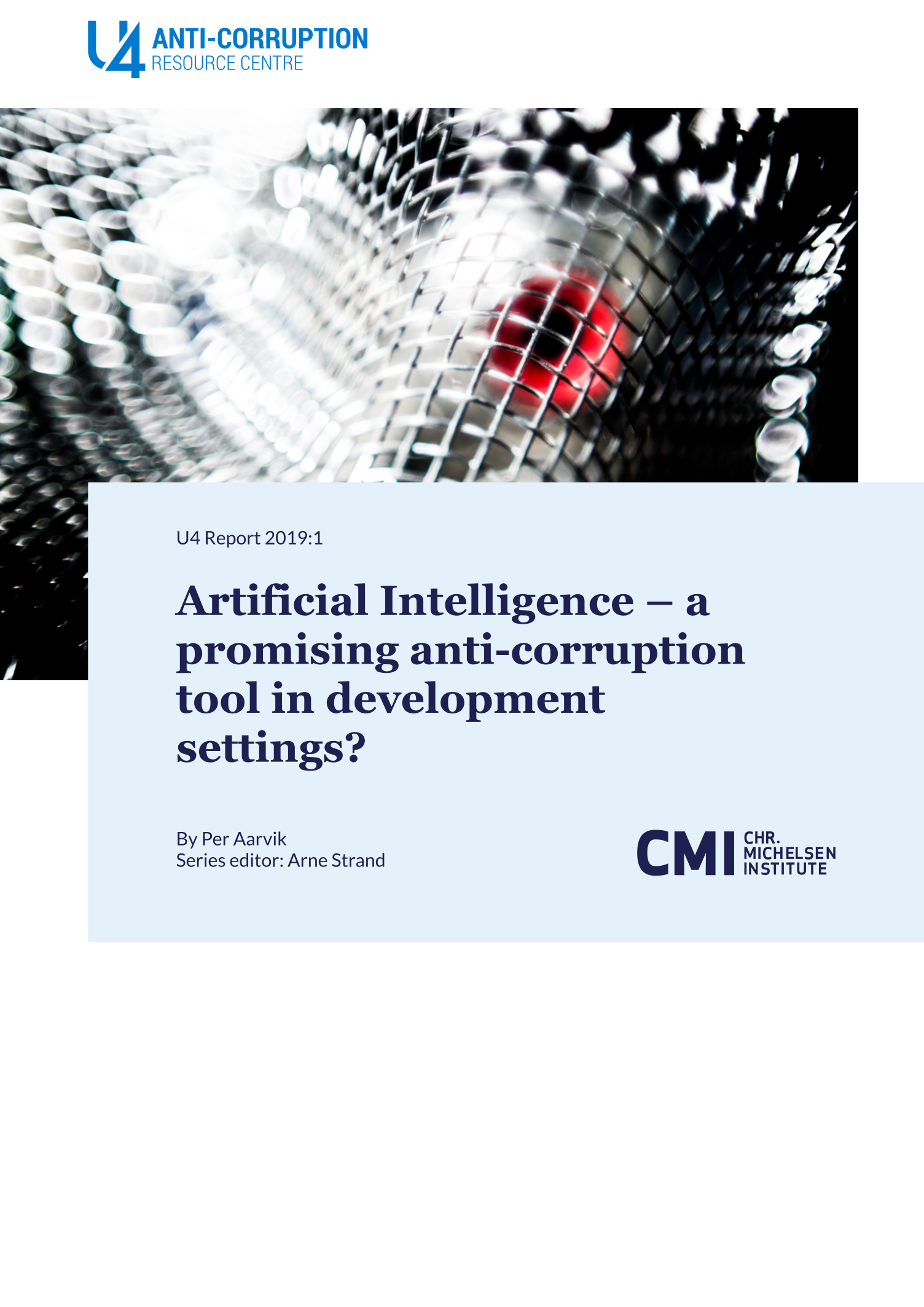Main points
- The ability of AI applications to work with datasets too large for manual handling make it possible to reveal or even predict corruption or fraud that previously was nearly or completely impossible to detect.
- AI-assisted procedures can replace previously corruption-prone processes.
- Digitisation is a prerequisite for AI to be deployed in anti-corruption efforts.
- Only a handful of countries in Africa have the level of digitisation in society to take advantage of AI.
- Mobile call data or social media data are in some cases also considered to be possible data sources for anti-corruption applications.
- Privacy concerns, surveillance issues, and possibly opaque decision-making processes are ethical challenges involved in the development of AI-driven systems.


